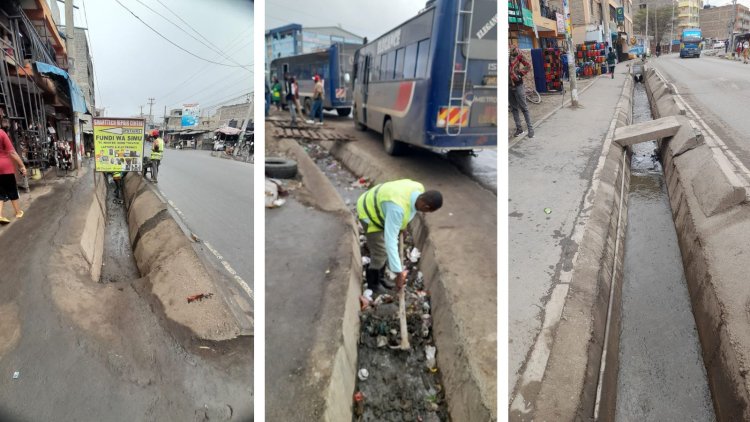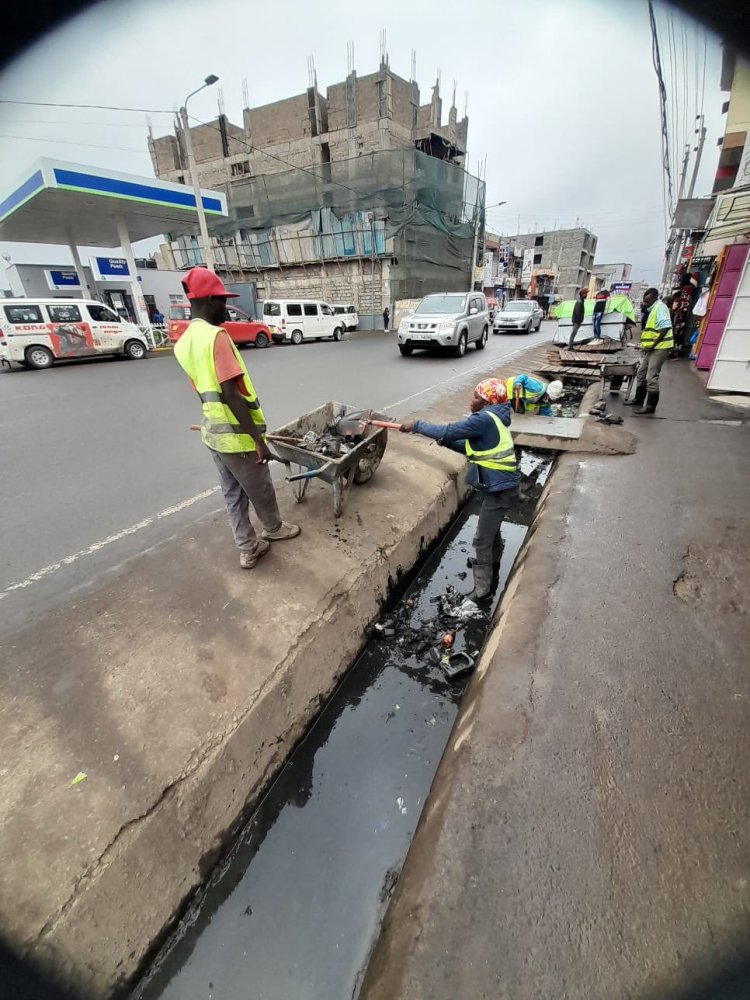Record And Expose: Sakaja To Kenyans On Illegal Garbage In Nairobi
The garbage menace has been viewed as Sakaja's major challenge...

Nairobi Governor, Johnson Sakaja, has called upon the county residents to take charge in ending the menace of garbage disposal in the capital city.
In his call to action on Twitter on Wednesday, November 2, Sakaja urged them to desist from discarding garbage in areas that have not been legally designated as official dumping sites.
He shared photos of ongoing works to unclog the drainage systems in different residential areas in Nairobi, calling upon Kenyans to expose those whom they will find dumping garbage there.

Ongoing efforts to clean up garbage in drainage systems in Nairobi. /TWITTER.SAKAJA JOHNSON
In addition, he stated that the county was working on a law that will criminalise illegal dumping.
"As we unclog the drainage system throughout the city, let’s kindly desist from further illegal dumping. When you see someone dumping and you record, mulika kabisa (expose completely); we arrest, prosecute and split the fine.
"Will work on the county law to provide for this. Let’s keep our city clean," he urged.
The photos show differences in the state of one of the drainage systems, with clear water flowing through them as compared to the horrible nature the workers were cleaning up on.
In October, Governor Sakaja attributed the garbage menace in Nairobi to the faults of the previous administration, blaming them for allowing the mess to take mainstream due to neglect, illegal dumping and contractors downing their tools over unpaid dues totalling Ksh3 billion.
In the same month, Sakaja noted that his government will float a green bond that will be used to build a mass transit system and expand the infrastructure for waste management and water distribution.
Part of the green bond, he said, will be used in sorting out the garbage issue in Nairobi by converting waste to energy.
According to Sakaja, his administration has collected at least 70 tonnes of garbage since taking over, and efforts are underway to find a long-term solution.
The garbage menace has been viewed as Sakaja's major challenge which has seen even several shortcuts preferred by residents in the Nairobi Central Business District (CBD) turned into dumpsites where heaps of uncollected garbage have been the order of the day.
The former Nairobi Metropolitan Services (NMS) disclosed that there was no proper waste collection plan yet the city generates 2,400 tonnes of solid waste daily. The nauseating affair is not limited to the city, but to its residential outskirts.
Commuters have been all too familiar with the stench that hits them every day they wake up, emanating from garbage with litter bins overflowing with trash to others turned upside down, spilling garbage.
This includes decomposing waste, paper, plastic, water bottles, clothing, shredded paper and office waste.
It is even worse when one considers collapsed sewerage and drainage lines, that is, a burst raw sewer and clogged drainage systems rule informal settlements in every square inch someone walks.
Locals additionally resorted to flying toilets and open defecation since households are not connected to sewer lines.

Ongoing efforts to clean up garbage in drainage systems in Nairobi. /TWITTER.SAKAJA JOHNSON

 admin
admin 




